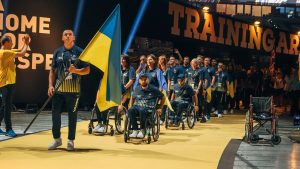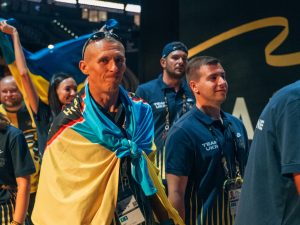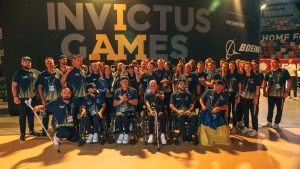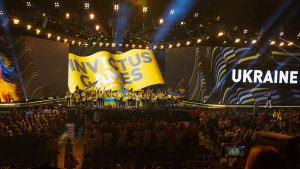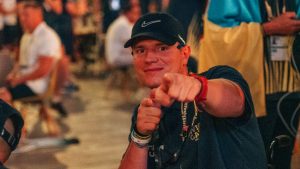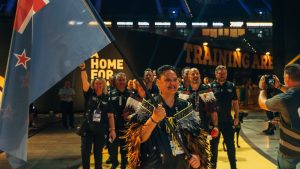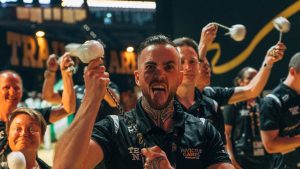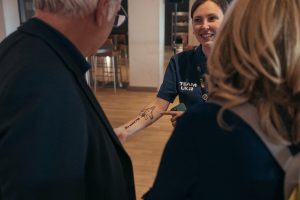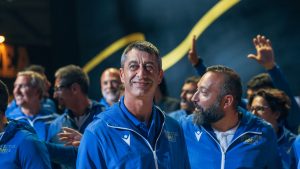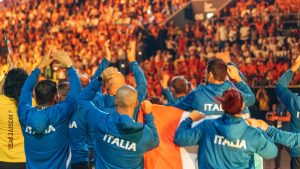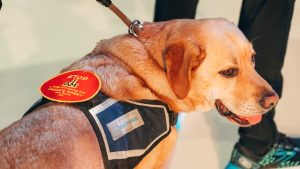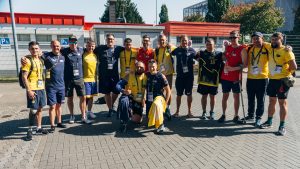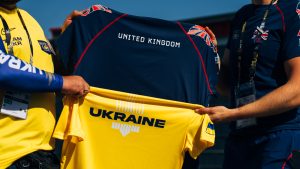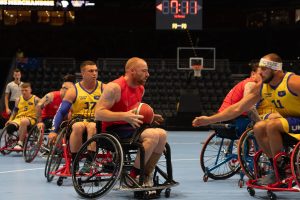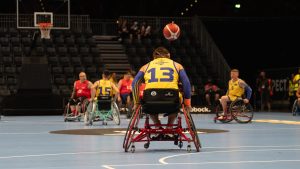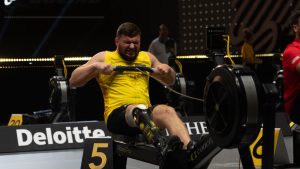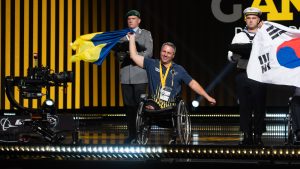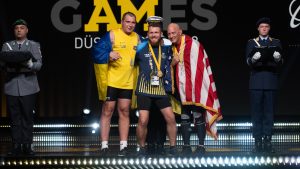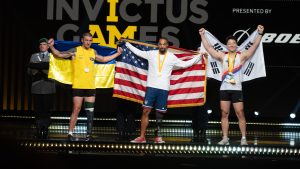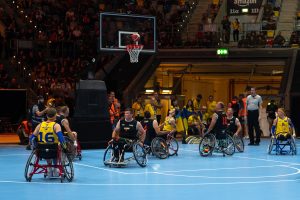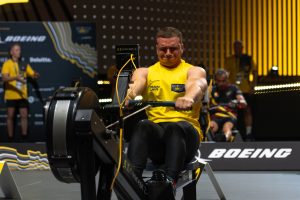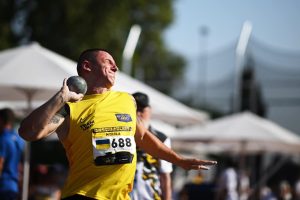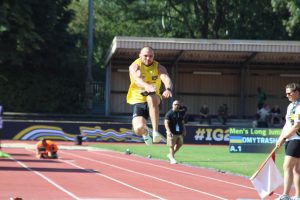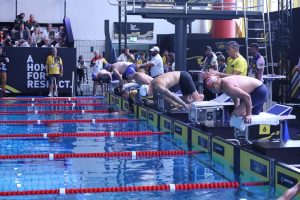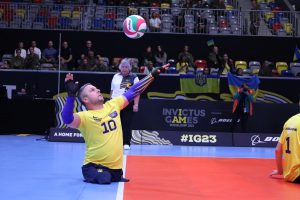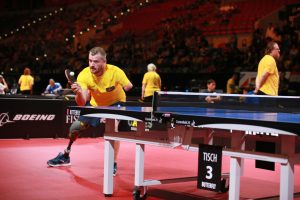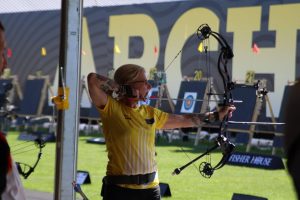"The participants felt recognised and respected. And this is the main reward"
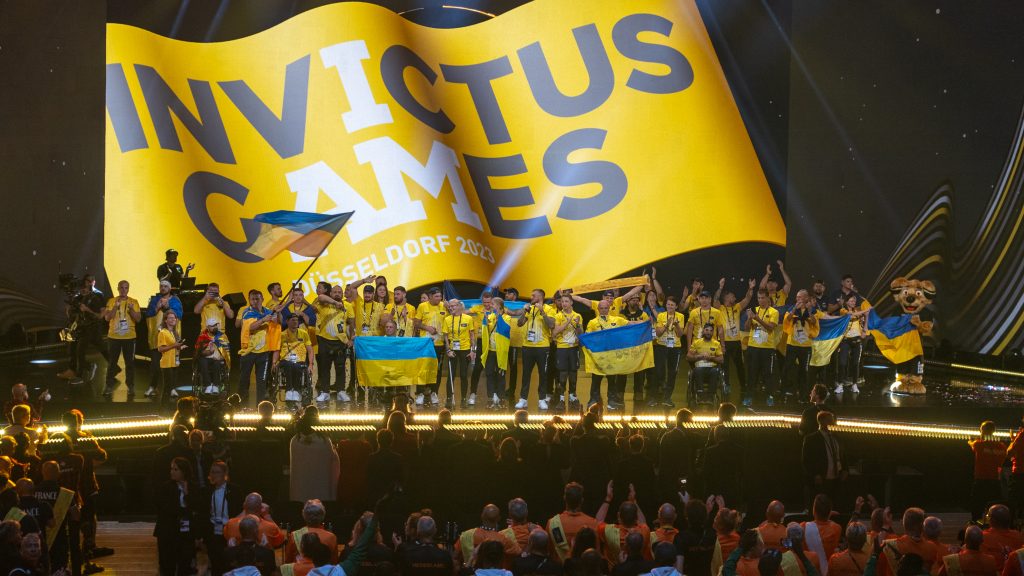
The Ukrainian national team won 34 medals at the Invictus Games 2023 in Dusseldorf, Germany. The team won 12 gold, 14 silver and eight bronze medals.
This year’s team consisted of 25 members. On 9-16 September, the Ukrainians competed in athletics, powerlifting, rowing, swimming, archery, cycling, sitting volleyball, wheelchair basketball and table tennis.
The most successful events for our team were rowing on simulators – 11 medals, swimming – nine awards and archery – five.
Nazar Vozniuk, a serviceman of the Armed Forces of Ukraine, won the most medals for Ukraine: four gold and a silver in swimming and rowing. He brought another silver medal to the team together with Oleksandr Ponomariov, Ihor Derman and Yevhen Kireyonok in the swimming relay.
Volodymyr Tovkys won two gold medals in rowing and a bronze medal in discus throwing. Vadim Maznichenko won a bronze medal in archery. Maksym Zubov won a silver medal in powerlifting. Volodymyr Tovkys, Maksym Zubov and Vadym Maznichenko also won gold in archery together.
Mykola Zaritskyi brought the team gold and silver medals in rowing on simulators. He also won gold in the shot put and silver in the discus. Yuliia Shevchuk won a gold medal in archery and two silver medals in rowing. Pavlo Luchkiv won gold in archery.
Oleksandr Makovey brought Ukraine a gold medal in the shot put.
Maksym Dmytrash has two silver medals – in rowing and long jump.
Ivan Moldun won two silver medals in rowing and swimming.
Oleg Dolzhok won a silver medal in rowing.
Volodymyr Hera won a silver medal in the discus throw.
Dmytro Polovian won two bronze medals in swimming, and another bronze medal was won by Oleksandr Budko.
Vitaliy Borodavka won bronze in the 100m dash, and Yaryna Alimanova won bronze in the cycling competition.
Yuliia “Taira” Paievska won a bronze medal in archery and a silver medal in the 50m freestyle among women in the ISD category. She was personally awarded by the Duke and Duchess of Sussex.
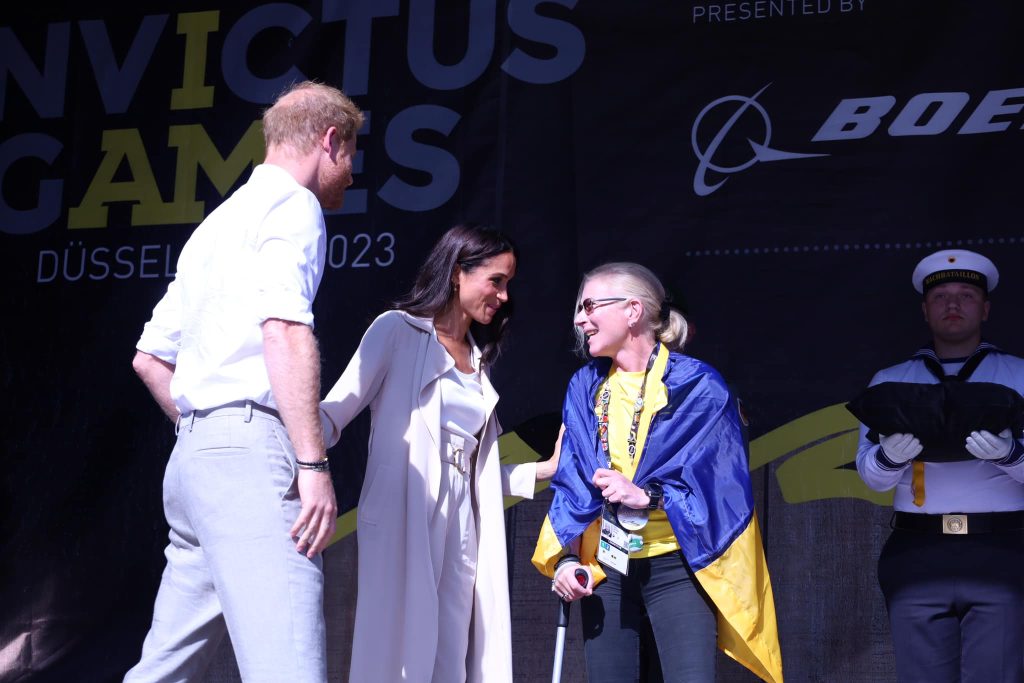
The Ukrainian team received a very warm welcome at the competition. When the Ukrainians took to the stage during the awards ceremony, the audience gave them a standing ovation. German President Frank-Walter Steinmeier expressed his deep respect and gratitude to the Ukrainian veterans in his welcoming speech.
German Defence Minister Boris Pistorius also singled out Ukraine in his speech: “I am impressed by the courage and spirit of Ukrainians in the fight against Russian aggression. They are fighting not only for their freedom, but also for our common freedom and security. That is why we must never stop supporting Ukrainians.”
“The Ukrainian national team is a great reflection of the entire Ukrainian people,” said Oleg Karpenko, Deputy Director of the Come Back Alive Foundation, “No matter how hard it is, we continue to fight for victory, freedom, values and independence. And we will continue to do so.”
– Invictus Games has never been a story just about medals. It is about the path that participants and their loved ones go through after being injured or wounded, about respect and recognition,” says Taras Kovalyk, Head of the Veterans Department at the Come Back Alive Foundation. “Invictus Games is a victory for each participant over themselves, the circumstances and challenges they went through to get here. Participants overcame their fears, insecurities, lack of faith in their bodies, fear of going out to people, being in a crowd. These are great but invisible victories. A medal is just the result of their hard work, not the ultimate goal.
Invictus Games is not so much about sport as it is about socialisation and dignity. It is not a competition between countries or participants, but a celebration of individuals.
There is no overall medal standings for the participating countries. Firstly, it is not ethical. Secondly, the impact of the Invictus Games on the participants cannot be measured by medals. Quotas for countries are very different. For example, Nigeria’s team consisted of 10 veterans and military personnel, while the US team consisted of 59. Each nation had different training timeframes and conditions, and its representatives participated in a different number of sports, with only one or two in some categories. For example, in the IR7 rowing category, there was only one competitor from the United Kingdom. In such cases, it is pointless to attach importance to a medal. But everyone present was impressed by the support of her teammates. They came out and rowed with her for 4 minutes.
One of the members of the Ukrainian team was unable to take part in the relay in the final. Therefore, Vadym Maznichenko, who did not even have a running prosthesis, Dmytro Kozak, a volleyball coach, veteran Yuriy Zekun, and assistant coach Oleksandr Zozuliak, who had a pelvic injury and an amputated arm, took part in the race outside the competition. Despite everything, they ran the course. They did it not for a medal, but simply enjoyed the movement. Such moments are what Invictus is all about. We stand up and show that we are unbreakable.
A real victory was the fact that our team took part in wheelchair rugby for the first time as part of the Unconquered team of different nations and in table tennis. Ukraine was also represented in all team sports: wheelchair rugby and basketball, sitting volleyball.
For the first time this year, the members of last year’s teams had the opportunity to be assistant coaches, learn from their experience and feel the Invictus Games atmosphere again.
The members of the national team became stronger than before. Oleksandr Budko, Dmytro Polovian and Ihor Derman broke their own records. Some of them gave up the painkillers they had been taking for a long time. Some smiled for the first time in months. And their children and relatives witnessed them doing incredible things.
Participants said they felt recognised and respected at the Invictus Games. And this feeling is the main reward.
Looking at the members of previous teams, we see how they have overcome depression, started families, started businesses, found jobs, grown personally and professionally, helped other veterans, and motivated them.
This year, 513 athletes from 22 countries took part in the Invictus Games. A total of 666 medals were awarded in 229 events.
Ukraine has been participating in the Invictus Games since 2017. Since 2019, Come Back Alive specialists have been involved in the selection of the team, accompanying them at all stages of preparation and at the competitions themselves.
In the spring, Come Back Alive, together with INTERTOP, raised UAH 12,031,578 as part of the “Support the Invictus” project to assist the Ukrainian National Team in the Invictus Games 2023 and rehabilitate veterans through sports.
